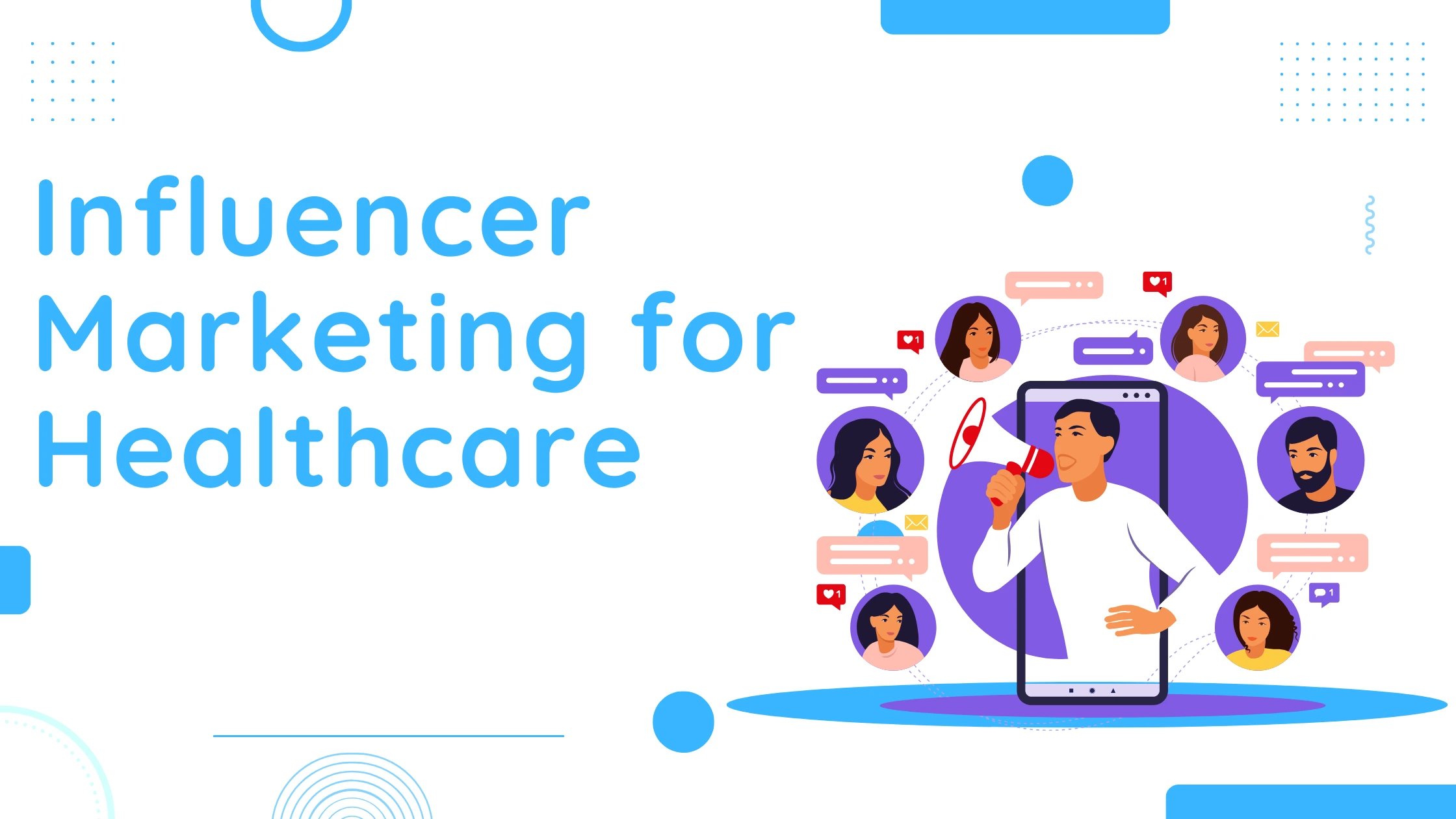Table of Contents
- What Is Influencer Marketing?
- Why Use Influencer Marketing In Healthcare?
- Types Of Healthcare Influencers
- Your 5-Step Healthcare Influencer Marketing Campaign
- Regulatory And Compliance Considerations
- Take A Note For Impactful Influencer Marketing Campaigns
What Is Influencer Marketing?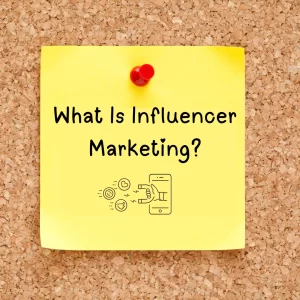
Influencer marketing is a powerful strategy for Healthcare marketing agencies and Pharmaceutical companies to connect with their target audience. It involves collaborating with influential individuals on social media to promote products, services, or health-related messages. In Healthcare, influencers can be doctors, wellness advocates, fitness trainers, or patients who share their personal health journeys.
Why Use Influencer Marketing In Healthcare?
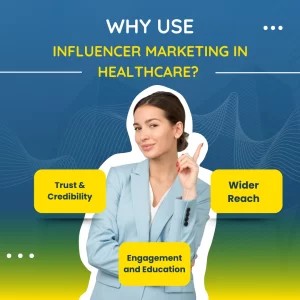
1. Trust & Credibility: Consumers trust real experiences and recommendations from influencers, especially those with a Healthcare background, such as doctors, or wellness advocates.
2. Wider Reach: From fitness enthusiasts to chronic disease patients looking for reliable solutions, Healthcare advertising agencies leverage the influencers’ established following to reach new, and niche audiences as well.
3. Engagement and Education: Influencers drive meaningful conversations, spreading awareness about health conditions, treatments, their management and preventive care. Healthcare marketing agencies use these authentic endorsements to reduce misinformation and improve public health literacy.
Types Of Healthcare Influencers
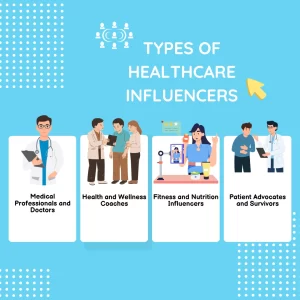
1. Medical Professionals and Doctors:
Licensed Healthcare professionals provide reliable, evidence-based medical information, debunk myths, and educate patients on diseases, treatments, and preventive care. Their expertise makes them trusted sources for health advice and product recommendations.
2. Health and Wellness Coaches:
Certified health coaches and wellness experts promote holistic well-being through stress management, mindfulness, self-care, and alternative healing. They bridge the gap between medical advice and lifestyle changes, offering sustainable health solutions over quick fixes.
3. Fitness and Nutrition Influencers:
Fitness and nutrition influencers, including certified trainers, dietitians, and sports scientists, promote a healthy lifestyle through exercise and balanced nutrition. As experts in fitness and meal planning, they help combat lifestyle diseases like obesity and diabetes by motivating people to stay active and make informed food choices.
4. Patient Advocates and Survivors:
Patient advocates and survivors share their personal experiences with chronic illnesses, rare diseases, or major health challenges to educate and inspire others. As cancer survivors, chronic illness warriors, or disability advocates, they provide emotional support, share treatment journeys, and empower patients to take charge of their health.
Synapse’s 5-Step Healthcare Influencer Marketing Framework

1. Define Your Goals & Audience:
At Synapse, we begin by clearly defining your campaign objectives—brand awareness, patient education, or driving sign-ups for a Healthcare service. We then meticulously identify your target audience, considering factors like demographics, health conditions, and online behavior.
2. Choose the Right Healthcare Influencer:
Synapse carefully selects influencers who align with your brand values and resonate with your target audience. We prioritize influencers with medical expertise, authenticity, engagement, and compliance awareness. Micro-influencers (10K–100K followers) often have higher engagement in Healthcare niches.
3. Develop Compliant & Educational Content:
Our creative team crafts content that educates and inspires, rather than simply promoting brands. We ensure all messaging strictly adheres to Healthcare advertising regulations.
4. Launch & Engage with the Audience:
Being one of the leading healthcare marketing agencies, Synapse activates your campaign through multiple channels—Facebook, Instagram, YouTube, TikTok, and LinkedIn. We encourage influencers to share personal stories, expert advice, or patient testimonials to maximize engagement and impact.
5. Measure Performance & Optimize:
We track KPIs such as engagement rates, website traffic, conversions, and audience sentiment. We analyze the results and use insights to optimize your campaigns for maximum effectiveness.
Regulatory And Compliance Considerations
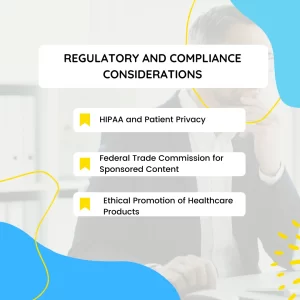
1. HIPAA and Patient Privacy
Ensure all patient-related information is kept private and confidential, in line with the Health Insurance Portability and Accountability Act (HIPAA). Never share identifiable patient data without explicit consent, and make sure influencers understand the importance of safeguarding patient privacy.
2. Federal Trade Commission for Sponsored Content
Influencers must clearly disclose any paid partnerships. Following FTC guidelines, they should use hashtags like #Ad or #Sponsored to maintain transparency with their audience. Failure to do so can lead to legal consequences and damage your reputation. Always ensure that sponsored content is honest and properly labeled.
3. Ethical Promotion of Healthcare Products
Promote products with integrity. Avoid exaggerating claims about effectiveness and make sure all health-related statements are scientifically supported. Focus on educating and providing value, rather than pushing unrealistic results. Ethical promotion helps build trust and ensures compliance with industry standards.
Take A Note For Impactful Influencer Marketing Campaigns
Influencer Marketing in Healthcare isn’t just about endorsements—it’s about education, advocacy, and trust-building. Successfully navigating the world of Healthcare influencer marketing requires a strategic and nuanced approach.
Ready to navigate the complex landscape of healthcare influencer marketing? Get in touch with Synapse Marketing Consultancy, we’ll guide you through every step of the process with our expertise.

